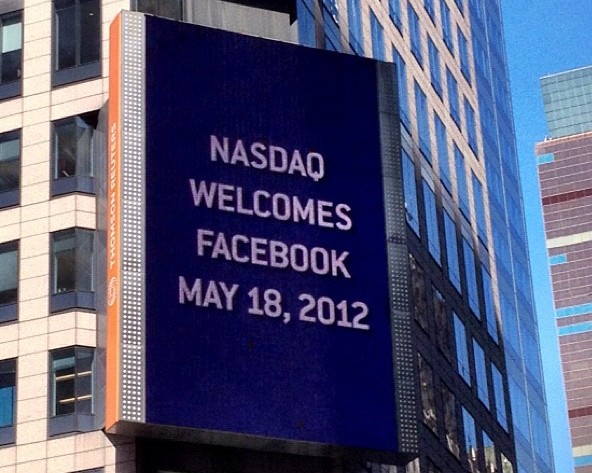The Socially Responsible Investing (SRI) community should consider a few things in the light of the ban of Alex Jones from social media.
Socially responsible investing is the attempt to align investment with moral values of the investor. It has been a concept that has been around a long time. Some of this investment is related to green issues. Some of this investment avoids unsavory categories. As Wikipedia says:
In general, socially responsible investors encourage corporate practices that promote environmental stewardship, consumer protection, human rights, and diversity. Some avoid businesses involved in alcohol, tobacco, fast food, gambling, pornography, weapons, contraception/abortifacients/abortion, fossil fuel production or the military.[1] The areas of concern recognized by the SRI practitioners are sometimes summarized under the heading of ESG issues: environment, social justice, and corporate governance.
Certainly, the social investing practitioners would generally be in favor of banning someone who exhibits racial or ethnic hatred against whole groups of people. It is good to look at Facebook and at Google and compare the two with regard to social concerns.
Facebook says clearly that the ban did not have anything to do with conspiracy theories. And this is encouraging. After all, some conspiracies are proven to be true. For example, Zero Hedge ran a piece showing that the conspiracy surrounding American funding of ISIS turned out to be true. The entire nation should be outraged but somehow it isn't. Still, the point is, conspiracies can be proven true eventually. Most are not but some are. Those folks who say it is a mental sickness to believe any conspiracy crawl into the woodwork when some are proven to be true.
Facebook was right in shutting down some of Jones' pages for:
...glorifying violence, which violates our graphic violence policy, and using dehumanizing language to describe people who are transgender, Muslims and immigrants, which violates our hate speech policies.
Companies have a right to keep certain standards. While companies should err on the side of no censorship, they do not have to tolerate hate. If Jones hates, he can hate without using these companies.
But Facebook does little censorship in search, at least for terms I am interested in. If you search Facebook, you will find conspiracy videos, websites, posts, all upfront, uncensored. Facebook is very ethical in this parsing those who seek a deeper understanding of the issues of the day from the racist and ethnic hatred, and harassment of people that has trapped Jones and others.
It is one thing to criticise leaders of government, which we are free to do, but quite another to brand an entire people no matter what ethnic group or race they belong to, or go after individuals in an unseemly way. That is not the American Way.
Facebook seems to be abiding by the spirit of SRI compared to Google.
 |
| ProducerMatthew at Wikipedia |
Google is a different case. Google does have the same issues with Jones, regarding hate speech. Google banned Jones from Youtube over hate speech according to their announcement. So far so good.
However, Google has engaged in real censorship, even before this, with search. For example, Google search for the term "conspiracy theories" lists more debunking sites than conspiracy sites. The first article as of the writing of this article is from the Washington Post, Why the GOP is so easily infiltrated by bonkers conspiracy theorists?
You would not see that on Facebook. I am no fan of the GOP on most issues. But I should expect to see debunking sites farther down the page as they were when 9/11 was first considered a possible conspiracy. Searching for '9/11 conspiracy" on Google brings more debunking sites than the sites I would expect to find. Google appears to be practicing a soft censorship, at least when compared to Facebook at this time.
Youtube is a little better than Google, with more real conspiracy arguments at the forefront of search for the term "9/11 conspiracy".
Google could be playing fast and loose with the truth, at least making an effort to bend the truth and foster certain opinion. Nowhere is this more blatantly evidenced than by Google seeking to establish a censored search engine for China. This engine is already developed!
The Intercept first reported on Google’s Chinese search project last week. According to the report, the tool takes the form of an Android app, and has already been demonstrated to the Chinese government. The project, reportedly codenamed “Dragonfly,” would be a profound reversal for the company, which in 2010 refused to comply with Chinese government censorship requirements on ethical grounds, and essentially abandoned the market.
Regardless of what SRI investors think about conspiracy, Google may be manipulating search. The European Union fined Google 2.7 billion dollars for floating its sites above others through manipulation. If Google can do this to enhance its own business, it could bow to government censorship for other search terms. Maybe other governments could influence Google as well.
Conclusion
The point of all this is that Google is not as ethical in its search as is Facebook, at least for the terms above that I searched for this article! Google is not a candidate, in my opinion, for ethical investing. That could change. After all, McDonalds used to permit pink slime in their burgers and now they are great burgers! That company has attempted over the years to improve its imprint on the environment as well.
For the SRI folks, I conclude that Google appears to be falling to the darkside, while Facebook, despite their problems with advertising, is still trying to be ethical on many fronts. I just hope Facebook keeps working to put ethical issues first. Google appears to be a lost cause.



